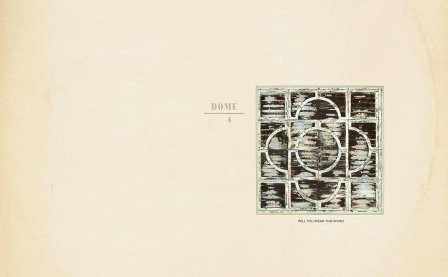You don’t see many 12 year olds wearing Wire t-shirts. The bedrooms of pre-teens, barometers of mass culture, have long paid homage to many of their fellow first-wavers. Colin Newman and his crew have kept off the racks of Hot Topic, while hardliners like Ian McKaye have found their bands’ logos bewilderingly juxtaposed with Nightmare Before Christmas sweatshirts and black grommeted arm warmers. Everything about Wire has resisted branding — from the name to the album art to the sound itself, they’ve managed to exist in some High Punk space more De Stijl than CBGB from the get-go.
They’re iconic in great part for being so unwilling to be made into icons. They subject hooks like those on “Three-Girl Rhumba” or “Another The Letter,” which could have fueled dozens of new wave hits, to brutally truncated track lengths on the perfect trinity of records the band released at its inception. While Mark E. Smith of The Fall, the only other group among the punk diaspora comparable in longevity and consistency, reads soccer scores on the BBC and slowly transmogrifies into the jazz-dancing backwards imp from Dale Cooper’s dreams on Twin Peaks, Newman remains level-headedly self-effacing. In a one-off show titled flag:burning at the Barbican Theatre in London in 2003, Wire (then a quartet, shortly before Bruce Gilbert’s departure) performed silhouetted in four glassy reflective cells, removing all direct contact between its members and with the audience. Like the oft-cited mid-80s tour on which they hired a cover band to play Pink Flag so they wouldn’t have to, this instance demonstrates the extent to which they’d rather obfuscate their own legend than be forced to buy into it themselves.
It’s a blessing, then, that Red Barked Tree, their latest export, stands up to the original trilogy better than any intervening album since 1988’s softly sinister A Bell Is a Cup Until It Is Struck. “Please Take” eases us in, its gleefully bitter lyrics capering over a slack groove and pealing harmonics. The amiable tempo and direct lyrics are nothing new — even on their first record, songs like “Feeling Called Love” and “Fragile” sat alongside the cryptic fusillade of “12 X U” — but Newman’s voice has since settled to a sleepy-eyed croon. He slurringly entreats you to “fuck off out of my face” from a bed of delay, like he’s asking you to pick up some milk on your way back home.
Yet in “Two Minutes,” we find the densest track the band’s put out in years, a gungily propulsive bullshit manifesto. Recapturing the sketchy brevity of the early days, it howls away while Newman dribbles self-aware Dada vulgarities, answering himself in a bogie’s snarl: “Coffee is not a replacement for food or happiness,” he insists. It’s a willfully idiotic song that’ll likely put off those who prefer their post-punk wink-free. Wire have always been fond of japery, but Red Barked Tree demonstrates new levels of levity.
The trio seems downright ebullient on the majority the record, with “Bad Worn Thing” taking on a sinewy cymbaled strut to match words like “Jam sandwich filled with Uzied peelers/ Frisking pimps and dawn car dealers.” Robert Grey’s taut rhythm work rises to the top of the mix this time around, the result of which, oddly enough, occasionally approaches Talking Heads territory. In fact, there’s been a distinct upgrade in production quality since 2008’s Object 47, which often felt flatly compressed, as evident in the almost XTC expansiveness of the title track.
With this strangely juvenile rush of an album, Wire have simultaneously honored and eroded the legacy of Pink Flag. Its nonsense lyrics seem intent on sapping the meaning from everything they’ve ever recorded, while its variegated, scintillating instrumentation pulls their three-decades-old sound into new domains. Gleeful act of sabotage or pop folly, Red Barked Tree is a worthy addition to the Wire legend.
More about: Wire




